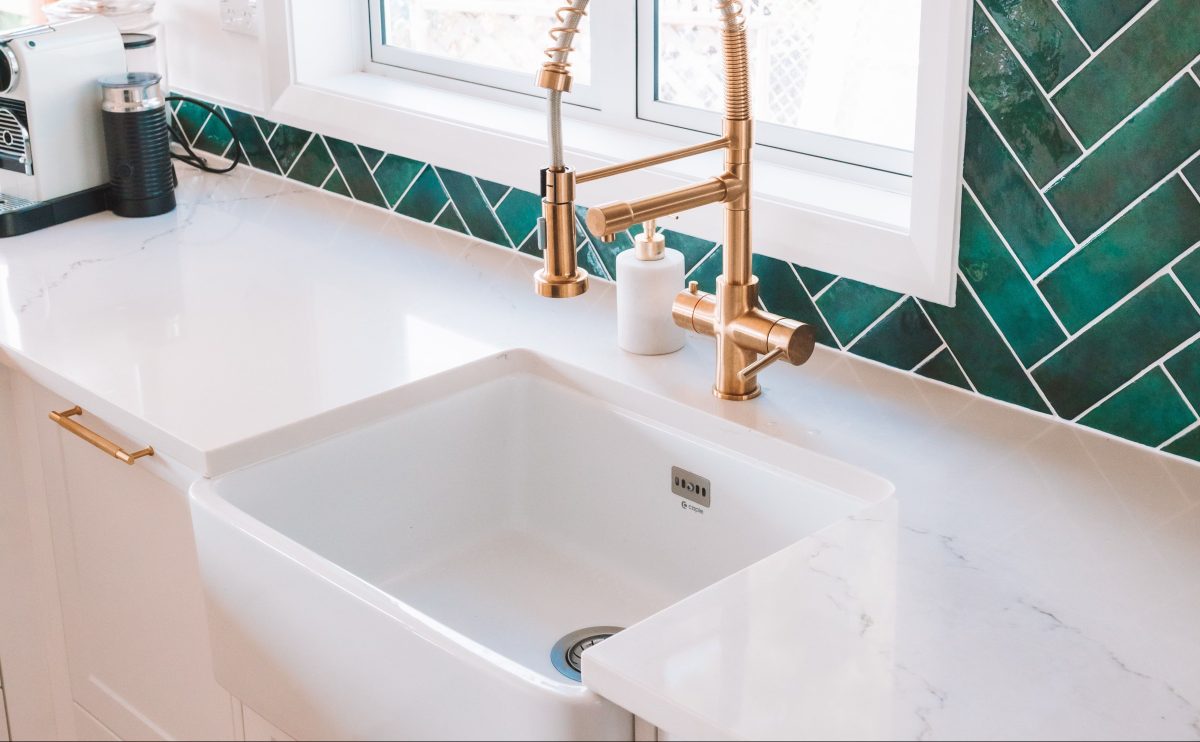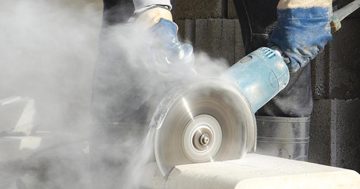
Safe Work Australia has recommended that engineered stone be banned. Photo: Callum Hill.
Safe Work Australia has published a report on the use of engineered stone in the workplace, and has recommended a prohibition on its use to protect the health and safety of workers.
The Decision Regulation Impact Statement: Prohibition on the use of engineered stone (Decision RIS) was developed by Safe Work Australia at the request of work, health and safety (WHS) ministers.
Safe Work Australia says the report was informed by stakeholder consultation, independent economic analysis, and an expert review of evidence, and that it recommends a prohibition on the use of all engineered stone, irrespective of crystalline silica content.
Engineered stone is a composite material most commonly used in kitchen and bathroom benchtops. It is made from crushed stone bound together by an adhesive of polymer resin or cement to create a solid surface. Silicon dioxide, or silica is a common, naturally occurring mineral found or manufactured in different forms, the most common being in quartz, but it is also found in some stones, rocks, sand, gravel and clay.
When cut or shaped, silica dust is released into the air, and can be inhaled even through protective breathing equipment.
The focus on engineered stone comes after revelations in the past eight years that the silica dust from cutting and machining the product has been found to cause silicosis, a lung disease thought as debilitating and deadly as mesothelioma and asbestosis. The inhaled dust can cause inflammation of the lungs which leads to scarring of the lung tissue and, in the worst cases, scarring leads to a stiffening of the lungs which makes it difficult to breath.
The agency says the decision is based on the following criteria:
- Engineered stone workers exposed to respirable crystalline silica (RCS) are significantly overrepresented in silicosis cases. Engineered stone workers are being diagnosed with silicosis at a much younger age than workers from other industries.
- Engineered stone is physically and chemically different to natural stone. The high levels of RCS generated by working with engineered stone, as well as the differing properties of this RCS, are likely to contribute to more rapid and severe disease.
- There is no toxicological evidence of a ‘safe’ threshold of crystalline silica content in engineered stone, or that other chemicals found in engineered stone do not pose a health risk to workers.
- Silicosis and silica-related diseases are preventable. However, a persistent lack of compliance with, and enforcement of, the obligations imposed under WHS laws across the engineered stone industry at all levels have not protected workers from the health risks associated with RCS.
WHS ministers are yet to make a decision on the prohibition recommendation, but they did allow Safe Work Australia to publish the report ahead of their decision.
Safe Work Australia is a national policy body representing the interests of the Commonwealth, states and territories, as well as workers and employers. As a national policy body, it doesn’t regulate WHS laws or administer workers’ compensation arrangements.
An Australian Council of Trade Unions (ACTU) release says the report will save lives.
ACTU Assistant Secretary Liam O’Brien said, “We urge all governments to introduce it at the earliest opportunity.
“Silicosis and silica-related diseases pose an unacceptable health risk to workers. This report shows that there is no type of engineered stone that is safe for workers. No worker in Australia should have to plan their funeral and farewell their loved ones, all because of a lung disease they got from working with this deadly stone.
“The report made clear that there is no other option than an outright ban on engineered stone. Keeping this deadly product legal means more workers getting health problems and more workers dying.
“We welcome the decision earlier this year of WHS ministers to introduce stronger silica rules covering all work. However, this report makes clear that to truly protect the health and wellbeing of workers, we must ban this deadly fashion product once and for all.”
Original Article published by Andrew McLaughlin on Riotact.




